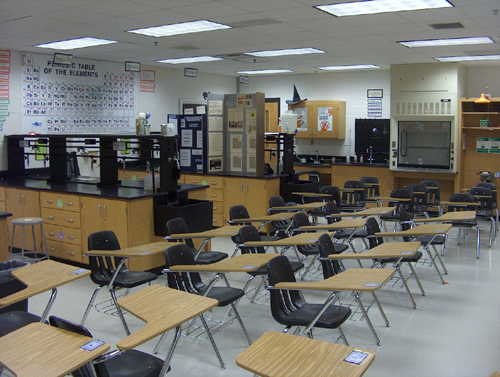MADISON SHEWMAN; Staff Writer: shewmama@plu.edu
On the outside, my brother Logan looks like an average kid. What you would not know by looking at his bright smile is this: When he was eleven, he was diagnosed with Attention Deficit Hyperactivity Disorder (ADHD).
When he was younger, Logan’s rambunctiousness was brushed aside with, “Oh, he’s just a boy. He’ll grow out of it.” Back then he was sent to the principal’s office almost daily, ejected from the classroom by irate teachers who couldn’t tolerate his impulsivity. People told him to think before he acted, calm down, be quiet. With more and more frequency, my brother was told to “grow up.” But you can’t grow out of ADHD.
Logan says that when he experiences ADHD, “My mind just makes snap decisions and I do things then and there. Everything I see seems like a good idea.” According to a study conducted by the National Institute for Mental Health, 9% of U.S. children ages between the ages of 13 and 18 experience symptoms of ADHD.
Although there is a vast spectrum for how intensely a person is affected by ADHD, in general someone who has ADHD gets sidetracked easily, is full of boundless energy, has a brain-to-mouth filter that only works sporadically and makes hasty decisions as soon as an idea occurs to them.
As you can probably guess, this combination can be disruptive in a school setting.
Having ADHD has made my brother’s life at school a struggle.
Once Logan was formally diagnosed with ADHD at age eleven, my parents were able to work with the local public school district to arrange for him to have an Individual Education Program (IEP). IEPs are a part of the Individuals with Disabilities Education Act (IDEA), which states that all children in the U.S. have a fundamental right to “free appropriate public education.”
Growing up with my brother, I discovered that everyone has a unique learning process. Some people are visual learners, some audial and still others learn best by actively doing. An IEP is specifically designed to assist the child that petitions for it and it is intended to meet the child’s special education needs.
My brother’s IEP ensures he receives clear instruction in age-appropriate social skills, extended time on assignments when deemed necessary and a daily positive check-in with an adult focusing on social interactions and study skills. These accommodations help Logan learn how to manage daily tasks with the added challenge of ADHD.
I have heard the words “you need a good education to have a stable life” echoed throughout my life. In my experience, I have found that the more you learn, the more opportunities you have. In order to receive a good education, my brother needs to be able to use his IEP to exercise his right to receive a “free appropriate public education.”
Even though DeVos has only recently been confirmed as Education Secretary, her incompetence is already evident. When questioned whether she would continue to support IDEA during her confirmation hearing, which provides assistance to millions of U.S. children, Devos had no idea what IDEA was.
When asked by Senator Tim Kaine if schools receiving federal funding should be required to meet the requirements of IDEA, DeVos responded: “I think that is a matter that is best left to the states.”
When Senator Maggie Hassan went back to the topic of IDEA, adding that IDEA is a federal law and must therefore be followed. DeVos responded by saying, “Federal law must be followed where federal dollars are in play.”
“So were you unaware when I just asked you about the IDEA that it was a federal law?” Hassan quipped back at Devos.
“I may have confused it,” DeVos said. By her own admission, Betsy DeVos confused a well-known federal law about educational rights with something else. (With what, exactly, I can’t help but wonder – perhaps the statistics for a grizzly bear wandering into a school with an AK-47?)
Even though this is just one example, DeVos clearly lacks both the experience and understanding necessary to grapple with the intricacies of public education, particularly regarding federal programs like IDEA.
This incompetence terrifies me. My family had to struggle through months worth of bureaucracy to get my brother an IEP. Since he has been granted an IEP, his experience at school has improved and his grades are much higher. Having access to an IEP has helped my brother receive a good education, which increase his chances of living a stable life.
Based on her dismal performance during her confirmation hearing and completely lacking experience with the public school system, I fear that Betsy DeVos will look at a seemingly-extraneous program like IDEA and cut it without a second thought.
As poet W.B. Yeats once said: “Education is not the filling of a pail, but the lighting of a fire.” DeVos would rather steal money from public education to fund charter schools than add even kindling to a child’s budding love for learning.
If DeVos remains ignorant of basic American educational rights, I am worried that millions of kids will suffer for it, including my brother. I want what is best for Logan. I want what is best for American children.
















